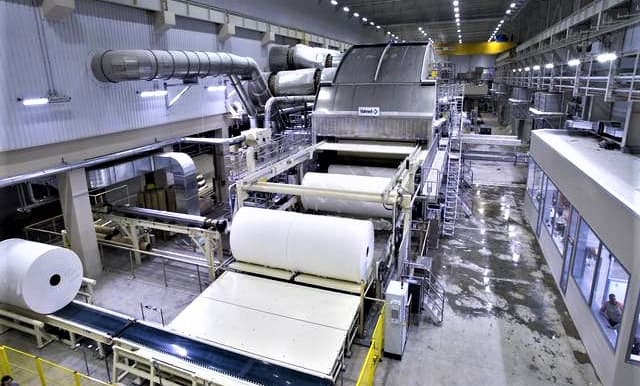Egypt’s paper manufacturer Quena Paper Industry Company (QPIC) intends to double its exports several times during the current fiscal to tide over a shortage crisis and the weakening of the Egyptian pound to the dollar, required for importing goods and raw materials and paying off foreign currency debts.
Alaa ElKhateb, executive managing director at QPIC, said that the company aims to increase its exports to about 20% of its production during the current year, compared to only about 6% during the past year.
He revealed that the company, suffering from a foreign currency shortage and the high dollar pricing against the Egyptian pound, was forced to put up with increased production costs by about 50% during the past year as compared to 2021, after the value of the company’s import bill of wood pulp amounted to $15 million.
With dollar shortage, the company is facing the challenge of paying back its loan to the Central Bank of Egypt (CBE), which financed the initial phase of its establishment valued at $137 million, with the remaining payment amounting to $30 million.
The dollar strengthened by about 64% against the pound over the past year after the rapid exit of foreign investors from the government debt market in February and March 2022, and the rise in the prices of many primary commodities that Egypt imported following the Russian invasion of Ukraine.
The central bank, on the other hand, also required importers to use letters of credit (LCs) rather than documentary collection when buying from abroad since March 2022, despite business concerns over the move that resulted in difficulty in importing basic commodities and raw materials.
Quena is working to substitute local alternatives for imported inputs, including relying on waste paper (dasht) instead of wood pulp, and is looking into the possibility of adding a kneading line for waste paper that could increase its production capacity by 30% and compensate for the shortage in wood pulp and bagasse for making writing and printing papers.
The crisis is being addressed by searching for possibilities of large volume exports, providing local alternatives, and the central bank’s effort in obtaining hard currency to continue the production process.
High production costs have impacted the price of paper in the market, with QPIC’s writing and printing papers exceeding 41,000 pounds per ton. However the company’s exports in 2022 amounted to 4,300 tons, about 6% of the production, which is higher than what was achieved in the previous two years.
ElKhateb said that the company’s production amounted to 81,000 tons over the past year, covering about 25% of the local market’s writing and printing paper needs. He added that QPIC only produces writing and printing papers used in textbooks and is one of the two main suppliers to the Ministry of Education.
While Quena is currently conducting studies on producing paper from palm fronds, ElKhateb also praised the effort and success achieved by Misr Edfu Paper Company and Alexandria-based General Company For Paper Industry (Rakta) in manufacturing paper using corn and rice straw instead of bagasse.
